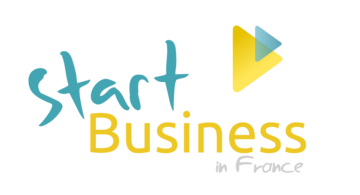I'm often asked for Power Hour calls with new or future micro entrepreneurs, “What else should I know that I didn't ask?”. This is a difficult question to answer, which is why I created the Manage Your Micro Entrepreneur course, showing new micro entrepreneurs what they need to know and do for their first year in business.
As I can’t summarise the whole course in one article, here are the top eight mistakes new freelancers and micro entrepreneurs make once in business
1. Coming to France with the Wrong Visa
One of the first mistakes is arriving in France with a long-stay visitor visa that doesn't allow you to work or freelance. There's a crucial distinction between what the French embassy might say and the tax office's point of view. According to the tax office, if you're spending more than 180 days per year in France, working from home, and your family’s interests are in France (school, work, main home), you should register for a business in France with a business visa, such as a visa profession libérale or a visa talent. Brainstorm what your future life in France will look like, then choose the appropriate visa, or you might have a bad surprise.
2. Overcomplicating Your French Business Structure
New freelancers often make the mistake of overcomplicating their French business structure. While you might have an LLC in the US or a UK Limited company, the equivalent French structures are more complex and costly to set up and manage. French business taxes differ significantly, and you need to understand these rules from the start. Many new business owners face surprises when tax season comes around because they didn’t grasp the implications of their chosen business structure and tax regime. Start simple with a micro-entrepreneur setup and scale up as your business grows.
3. Registering Incorrect Business Activities
Freelancers sometimes register their business under one activity and then want to add new activities shortly after. It’s essential to brainstorm and register your business accurately to reflect your main activities. Different activities can link you to different regulatory bodies, impacting your social charges.
For instance, I'm afraid that you can’t set up as a video producer, only to offer DIY or building activities two months later. This is a big no-no in France! Take some time to brainstorm what you want to do now and in six months, including both activities and ensuring you are actually allowed to do both (i.e. check for regulated activities).
4. Failing to Invoice Properly
In France, it's mandatory to issue an invoice for sums of 25 euros and above, even if your customer isn’t interested. Failing to invoice correctly can result in legal issues. Ensure your invoices include your business details, customer details, and VAT references. Even experienced professionals have been known to omit these, so take the time to learn about French invoicing practices and get it right for day one.
5. Neglecting Bookkeeping
Bookkeeping is crucial, even for micro-entrepreneurs. You need at least a basic log of income called “livre des recettes” and, if relevant, expenses with “livre des dépenses”. This can be done on paper, a spreadsheet, or with software, but it’s vital to keep these records for 10 years. Be prepared for possible audits from the tax office, which may require historical financial data for up to 3 years.
6. Not Having a Dedicated Bank Account
A dedicated bank account isn’t just good practice; it's mandatory for micro-entrepreneurs when transactions exceed 10,000 euros per year, and from the outset for other business types. It prevents mixing personal and business finances and is essential for demonstrating financial self-sufficiency, especially for business visa renewals.
7. Ignoring Administration and Postal Mail
In the initial months, you'll receive a lot of important postal mail. Don’t overlook correspondence from organisations like URSSAF, Impôts or CPAM. Properly manage and respond to these communications promptly, keeping copies for your records to prevent any administrative hiccups.
8. Falling for Scams
Scammers often target new freelancers and Micro Entrepreneurs with seemingly legitimate invoices. These fake documents often attempt to lure you into unnecessary payments toward fake European VAT directories or listings. Be sceptical of any unsolicited mail requesting payments, particularly if it relates to your business registration.
By being informed and vigilant, new freelancers can steer clear of these common mistakes and establish a successful business in France. If you’re feeling overwhelmed, consider joining the Manage Your Micro Entrepreneur course for further guidance on handling your micro-entrepreneur business, complete with regular updates, how-to videos, checklists and a supportive community.
You can join Manage Your Micro Entrepreneur any time during the year and get my support for one year via the forum and the monthly group course.

